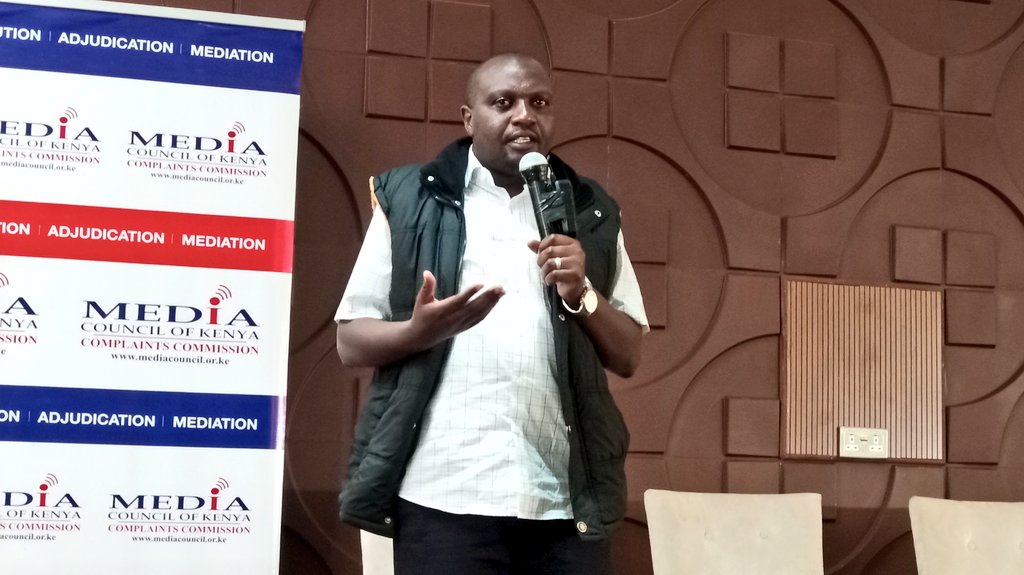News
MCK Pushes For Sh1.5 Billion AI Tool To Monitor Journalists

The Media Council of Kenya (MCK) is seeking Sh1.5 billion from Parliament to acquire an artificial intelligence-powered monitoring system that would strengthen ethical oversight in the media industry.
Appearing before the National Assembly’s Committee on Communication, Information and Innovation on Tuesday, MCK officials argued that the investment is necessary to modernise the council’s capacity and keep pace with Kenya’s rapidly expanding broadcast sector.
MCK Chief Executive Officer David Omwoyo told MPs that the country now has about 250 licensed television stations, many of them broadcasting in vernacular languages, making it difficult for the council’s human analysts to adequately monitor content.
“The current framework relies on 37 analysts, which is not sufficient to comprehensively cover the media landscape. This gap calls for urgent and strategic investment in an advanced system capable of real-time monitoring to safeguard ethical compliance,” Omwoyo said.
He explained that the proposed AI system would allow the council to flag unethical or harmful content instantly, particularly from vernacular stations that have historically evaded effective oversight.
The council also presented sobering statistics on press freedom violations this year, revealing that between January and September 2025, it had recorded 84 incidents. These included 56 cases of physical assault on journalists—mostly during anti-government protests and political events—16 cases of intimidation, eight of censorship, three arrests and one abduction.
Male journalists were disproportionately affected, with 65 cases compared to 19 involving female reporters. Police officers were cited as perpetrators in the majority of the violations (65), followed by hired gangs (28). Government officials, including Cabinet Secretaries and county officers, were linked to 15 incidents, while others involved protesters, teachers, politicians, a governor and even a magistrate.
Committee chair John Kiarie acknowledged the tension between press freedom and accountability, stressing the need for Parliament to craft laws that both protect journalists and shield the public from misinformation.
“The narratives shaping our world today are increasingly driven by algorithms and platforms outside traditional newsrooms. Parliament must strike a balance between protecting Kenyans from misinformation and upholding a free, responsible press,” Kiarie said.
The committee further resolved to work with MCK and the Centre for Parliamentary Studies and Training (CPST) to boost MPs’ media literacy ahead of the next elections, while also urging media houses to embrace digital transformation.
Kenya Insights allows guest blogging, if you want to be published on Kenya’s most authoritative and accurate blog, have an expose, news TIPS, story angles, human interest stories, drop us an email on [email protected] or via Telegram
-

 Grapevine2 weeks ago
Grapevine2 weeks agoRussian Man’s Secret Sex Recordings Ignite Fury as Questions Mount Over Consent and Easy Pick-Ups in Nairobi
-

 News6 days ago
News6 days agoTHE FIRM IN THE DOCK: How Kaplan and Stratton Became the Most Scrutinised Law Firm in Kenya
-

 Investigations1 week ago
Investigations1 week agoMulti-Million Dollar Fraud: Three Kenyans Face US Extradition in Massive Cybercrime Conspiracy
-

 Economy7 days ago
Economy7 days agoIran Demands Arrest, Prosecution Of Kenya’s Cup of Joe Director Director Over Sh2.6 Billion Tea Fraud
-

 Business1 week ago
Business1 week agoA Farm in Kenya’s Rift Valley Ignites a National Reckoning With Israeli Investment
-

 Africa1 week ago
Africa1 week agoFBI Investigates Congresswoman Ilhan Omar’s Husband’s Sh3.8 Billion Businesses in Kenya, Somalia and Dubai
-

 Politics2 weeks ago
Politics2 weeks agoSifuna, Babu Owino Are Uhuru’s Project, Orengo Is Opportunist, Inconsequential in Kenyan Politics, Miguna Says
-

 Grapevine3 days ago
Grapevine3 days agoA UN Director Based in Nairobi Was Deep in an Intimate Friendship With Epstein — He Even Sent Her a Sex Toy
















